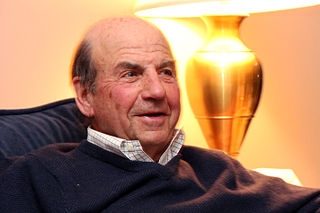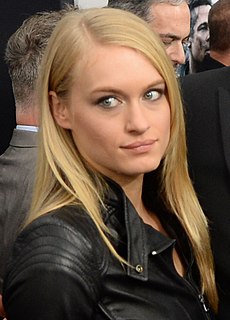A Quote by Haruki Murakami
I don't know, there's something about you. Say there's an hourglass: the sand's about to run out. Someone like you can always be counted on to turn the thing over.
Related Quotes
I want you to think of your life as an hourglass. You know there are thousands of grains of sand in the top of the hourglass; and they all pass slowly and evenly through the narrow neck in the middle. Nothing you or I could do would make more than one grain of sand pass through this narrow neck without impairing the hourglass. You and I and everyone else are like this hourglass.
And when the hourglass has run out, the hourglass of temporality, when the noise of secular life has grown silent and its restless or ineffectual activism has come to an end, when everything around you is still, as it is in eternity, then eternity asks you and every individual in these millions and millions about only one thing: whether you have lived in despair or not.
As a scholar, you don't want to repeat yourself, ever. You're supposed to say it once, publish it, and then it's published, and you don't say it again. If someone comes and gives a scholarly paper about something they've already published, that's just terrible. As a university president, you have to say the same thing over and over and over.
Whenever you take a general meeting, inevitably you run out of things to talk about, they'd always say, 'What's your dream project?' I would always pull out 'Gerald's Game.' If they knew the book, they'd say, 'Well, that's unfilmable.' If they didn't know the book it would take about 30 seconds of my pitch to say, 'That's not a movie.'
Something I always tell students is, when you're writing something, you want to write the first draft and you want it to come out easily in the beginning. If you're afraid to say what you really have to say, you stammer. [...] You're judging yourself, you know, thinking about your listener. You're not thinking about what you're saying. And that same thing happens when you write.
It used to be that I could talk to someone in Texas and nobody would hear about it. Now, the moment I open my mouth it's all over the world. The second I say something, guys in Germany know about it. It's basically a wonderful thing because more information is spread, but you have to keep your mouth shut.
You know, something like 90 people who have now filed to run for governor in this recall election. They say there could be as many as 200 people on the ballot. You know, it's really easy to run here in California. All you need is like a couple of signatures, not many, thirty-five hundred bucks, you're on the ballot, like that. I mean, what does it say about California? We have stricter requirements to get on 'American Idol' than we do to run for governor.




































